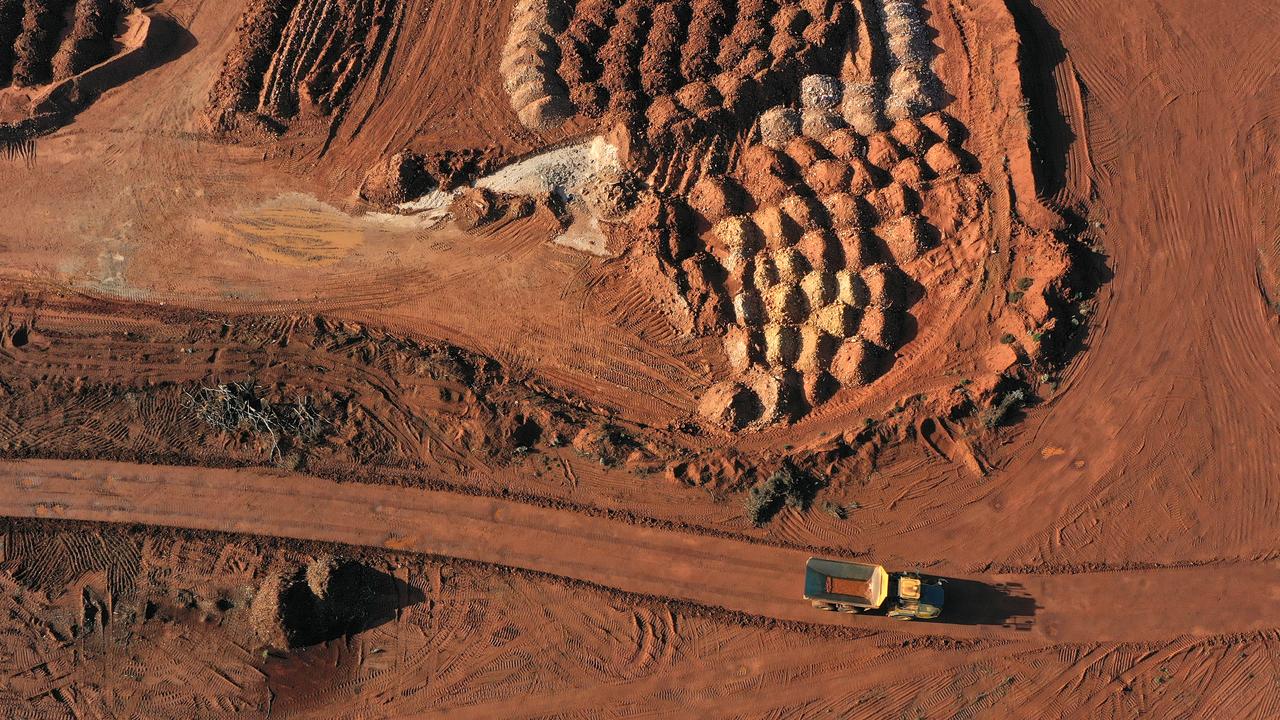
With S&P 500 futures surging after House Speaker Nancy Pelosi set the Tuesday deadline for a stimulus deal and US President Donald Trump said he would agree to more than the $US1.8 trillion ($2.5 trillion) proposed by Republican politicians, local shares ignored slightly disappointing economic data from China, with the ASX 200 closing up 0.9 per cent at an eight-month high of 6229.4.
The ASX 200 has significantly outperformed global markets since the second week of October, rising on nine of the 11 trading days since then for a 7.6 per cent gain — twice as much as the MSCI World index up until last Friday — as investors realised Australia is going all out on fiscal and monetary policy stimulus and trends in coronavirus and reopening are vastly better here.
But despite the market’s excitement about the possibility of a last minute deal, based on the Democrats’ deadline and Trump’s apparent willingness to go above $US1.8 trillion (even though he doesn’t appear to have the necessary support from Senate Republicans) this may just be for optics — similar to Trump’s antics a week ago — as both sides jostle to look like the “good guys” just before the election when political point scoring is paramount.
Fed officials Jerome Powell and Richard Clarida may reinforce the Fed’s recent strong calls for more US fiscal stimulus in their speeches on Monday, but if there’s no deal by midnight (3pm Wednesday in Sydney), investors will be disappointed and shares could retreat.
But perhaps more important now are the trends in US opinion polls and betting odds.
Not that the actual levels of the polls and betting odds count for much on election night — as shown by the US election in 2016 and the 2019 British election, these indicators can be terribly wrong.
That’s another reason not to get too complacent about the risk of an “ugly” contested election that could take months to be resolved.
Even if investors get the clear-cut win by Joe Biden and major US infrastructure stimulus they’re looking for, there’s a risk of capital gains and corporate tax hikes and possibly antitrust regulation under Democrats.
And Biden’s lead over Trump in betting odds and opinion polls seems to have peaked, possibly as a result of the New York Post email “leak” getting some traction.
Real Clear Politics’ average of betting odds showed Biden’s lead over Trump shrank to 20 per cent from a campaign high of 34.7 per cent a week ago, and its average of opinion polls showed Biden’s lead had shrunk to 9 per cent from a high of 11 per cent a week ago.
On the eve of the 2016 US election, betting odds had Hillary Clinton 75 percentage points ahead of Trump and polls had Clinton more than 3 percentage points ahead.
In the event of a contested US election Australian shares look safer, particularly since (apart from technology) they’ve recovered less than the US market — the ASX 200 is up 42 per cent while the S&P 500 is up 60 per cent since March — Australian trends in coronavirus are better and Australia is launching fiscal and monetary stimulus while in the US it has stalled.
Reserve Bank minutes on Tuesday are likely to reinforce the message from RBA governor Philip Lowe that interest rate cuts and quantitative easing are coming next week.
But Citi’s chief US equity strategist, Tobias Levkovich, says investors have already started considering the repercussions of stimulus, Fed liquidity and pent-up demand once vaccines and therapeutics provide a more back-to-normal backdrop next year. “Clients are asking about inflation beneficiaries and when one might see a pick-up in pricing trends, even though a CPI spike still may take some time to evolve,” he says.
“It may be too early to worry now, but the same may not be true by mid-2021,” he says. “Any push to reduce globalisation also will contribute to higher domestic costs, not to mention the possibility that pent-up demand does not temporarily generate some imbalances that could drive prices higher.
“Such a change though would be very consistent with a shift to value from growth since the past seven months’ ‘duration trade’ was driven by the view of an extended period of low interest rates, which favoured secular growers.”
Energy, materials, industrials and utilities have historically done better when inflation was rising.








It was a strong start to the week but bullish sentiment in shares and other risk assets could be tested after Tuesday’s deadline for a deal on pre-election US fiscal stimulus set by House Democrats.